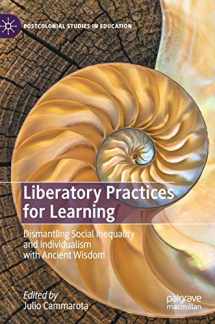
Liberatory Practices for Learning: Dismantling Social Inequality and Individualism with Ancient Wisdom (Postcolonial Studies in Education)
Book details
Summary
Description
This book promotes collaborative ways of knowing and group accountability in learning processes to counteract the damaging effects of neoliberal individualism prevalent in educational systems today. These neoliberalist hierarchies imposed through traditional, autocratic knowledge systems have driven much of the United States' educational policies and reforms, including STEM, high stakes testing, individual-based accountability, hierarchical grading systems, and ability grouping tracks. The net effect of such policies and reforms is an education system that perpetuates social inequalities linked with race, class, gender, and sexuality. Instead, the author suggests that accountability pushes past individualism in education by highlighting democratic methods to produce a collective good as opposed to a narrow personal success. In this democratic model, participants contribute to the common goal of elevating the entire group. Drawing from a well of creative praxes, reflexivity, and spiritual engagement, contributors incorporate collective dreaming to envision alternate realities of learning and schooling and summon the spirit into action for change.


We would LOVE it if you could help us and other readers by reviewing the book
Book review



